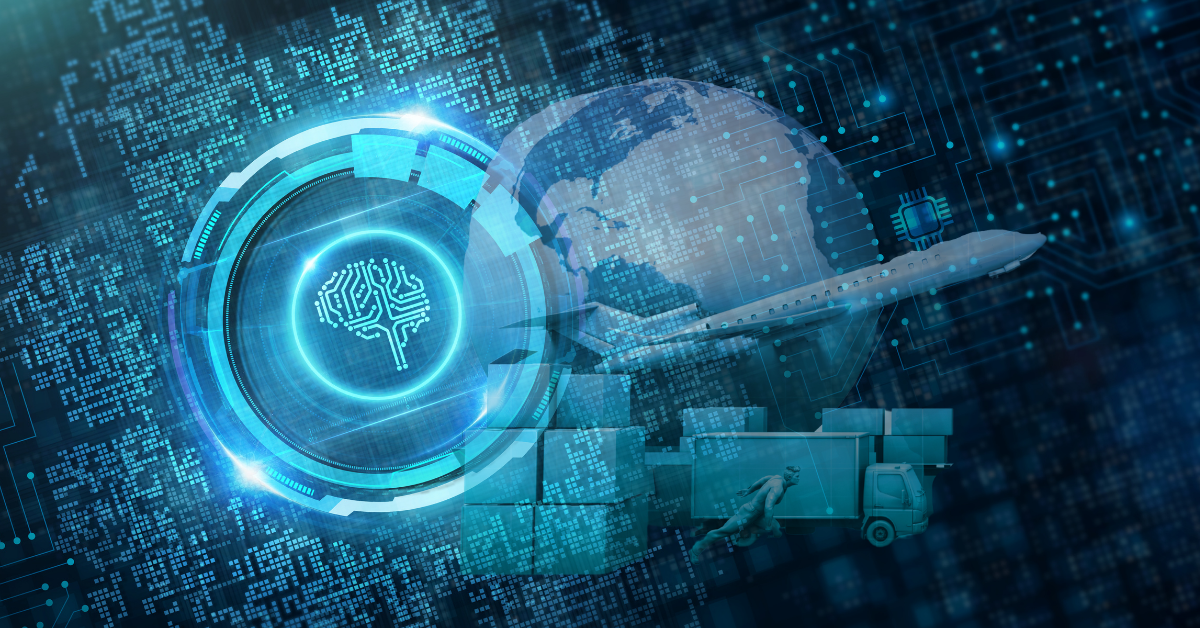Doesn’t it seem that on some level machine learning is still “out there,” somewhere in the future like quantum computing? AI-based applications, machine-learning being one of them, are flooding in and supply chain is a beneficiary. Given the vast amounts of complex data supply chains create, machine learning is adept at analyzing the information, enhancing supply-chain management (SCM) with its findings.
Machine Learning
As a branch of artificial intelligence (AI), machine learning (ML) uses data to train a computer model so it automatically adjusts to conditions without being programmed to do so. It teaches itself and, over time, so that accuracy and operations improve. Research firm Gartner predicts that intelligent algorithms and AI techniques will be an embedded or augmented component across 25% of all supply-chain technology solutions by 2023.
Observations or data are used to train a computer model using data patterns combined with predicted and actual outcomes. The results are analyzed and used to improve how the technology functions. By continuing to repeat the cycle, the results are further refined and the accuracy improves.
Central to all supply chains is the goal of decreasing vulnerability to disruption. Machine learning, as we will see, can hold the answer to improved data analysis, supply-chain optimization, cost reduction, planning, and forecasting.
Machine Learning in Supply Chains
Over the past few years, supply chains have struggled through unprecedented vulnerability and major disruptions from pandemics and security breaches to transportation and major shortage challenges. Although these challenges won’t be solved overnight, the implementation of machine learning can help supply chains mitigate their major issues.
It might seem that machine learning is far too new to be of substantial benefit—however, that’s not true. In fact, it is already in use for predictive analysis, fraud discovery and prevention, improved forecasting, the reduction of both costs and response time, last-mile tracking, streamlining production planning—virtually anywhere optimization is key. Benefits of AI and ML can already be observed in all supply chain functions including manufacturing, inventory, logistics, warehousing, procurement, and even customer service.
Machine learning provides reduced operational overhead, enhanced forecasting and faster deliveries, but its real benefits are optimization and insight. And the technology is rapidly gaining interest. . Those that have already implemented AI/machine learning are already wading through the data generated to have a better understanding of their current business, and a view of what will most likely happen in the future.
The supply chain segments where machine learning is beneficial include:
- Inventory to help avoid overstocking and under-stocking
- Logistics and transportation to track real-time location of goods and route optimization
- Quality to identify quality problems in productions early—defect detection
- Chatbots used to answer routine queries—freeing supply-chain relationship staff to focus on and perform higher-level tasks
- Enhancing fraud protection based on pattern and anomaly recognition
- Improved decision-making based on best- and worst-case scenarios.
Challenges
When we look at machine learning, good data is mandatory. The majority of ML challenges involve GIGO (garbage in—garbage out). The data must be reliable, high quality, and timely. The acquisition of datasets, especially those from multiple sources should be creatively approached, prioritized, and be privacy-compliant.
For supply chains, that means it is imperative that all supply chain members provide information and do it in a consistent way. Integrated SCM software that taps into the data of supplier and manufacturer systems should automatically collect and process data. Data should also be checked and audited on a periodic basis to ensure it is delivering the highest quality data available. Models should also be checked so that the results and recommendations reached by the machine-learning process are aligning with both needs and expectations, which may change over time.
The reality is that supply chains have been through the proverbial wringer recently. Employing a technology that has not only a wide range of applications and benefits, but also increasingly improves just makes sense.
The Future
Such disruptive technologies as the Internet of Things (IoT), artificial intelligence, and machine learning are well underway to transforming supply chains into connected, intelligent, scalable, and customizable digital supply networks.
Although implementing advanced technologies can initially be a daunting task, the improved forecasts, logistics management, and automation will provide those who use it greater efficiency, lower costs, and most important, less vulnerability to disruptions.

